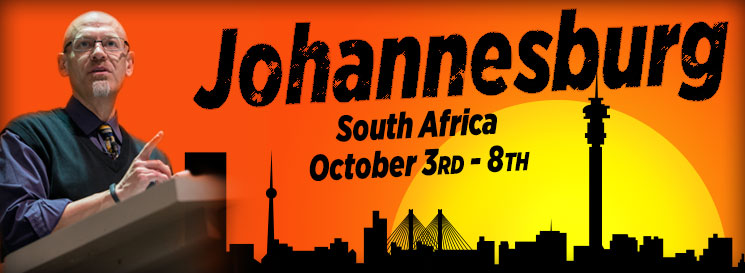This is part 9 of the thirteen part series in response to Jay Dyer. The previous part may be found here (link).
Jay Dyer says:
8) “[A consistent Calvinist must be] An ecclesiastical relativist, because there is no authoritative Church.”
I answer:
a) The Calvinist Position (whether right doctrine or error let Scripture decide)
God did not leave “an” institutional church. God left the system of government by elders that had been practiced in the Old Testament (see, for example, Exodus 3:16), modified according to the needs of New Testament believers, with specific instructions regarding the qualifications of elders (Titus 1 and I Timothy 3). Nevertheless, believers are called not to be empty-headed but to be on the lookout for false teachers (I John 4:1) and the example of the Bereans is commended to them (Acts 17:11).
Truth is one. Thus we speak of “the truth” (Psalm 69:13 But as for me, my prayer is unto thee, O LORD, in an acceptable time: O God, in the multitude of thy mercy hear me, in the truth of thy salvation.) and “the gospel” (Mark 16:15 And he said unto them, Go ye into all the world, and preach the gospel to every creature.).
This can especially be seen in John’s third general epistle:
3 John (the entire book)
1 The elder unto the wellbeloved Gaius, whom I love in the truth. 2 Beloved, I wish above all things that thou mayest prosper and be in health, even as thy soul prospereth. 3 For I rejoiced greatly, when the brethren came and testified of the truth that is in thee, even as thou walkest in the truth. 4 I have no greater joy than to hear that my children walk in truth. 5 Beloved, thou doest faithfully whatsoever thou doest to the brethren, and to strangers; 6 Which have borne witness of thy charity before the church: whom if thou bring forward on their journey after a godly sort, thou shalt do well: 7 Because that for his name’s sake they went forth, taking nothing of the Gentiles. 8 We therefore ought to receive such, that we might be fellowhelpers to the truth. 9 I wrote unto the church: but Diotrephes, who loveth to have the preeminence among them, receiveth us not. 10 Wherefore, if I come, I will remember his deeds which he doeth, prating against us with malicious words: and not content therewith, neither doth he himself receive the brethren, and forbiddeth them that would, and casteth them out of the church. 11 Beloved, follow not that which is evil, but that which is good. He that doeth good is of God: but he that doeth evil hath not seen God. 12 Demetrius hath good report of all men, and of the truth itself: yea, and we also bear record; and ye know that our record is true. 13 I had many things to write, but I will not with ink and pen write unto thee: 14 But I trust I shall shortly see thee, and we shall speak face to face. Peace be to thee. Our friends salute thee. Greet the friends by name.
Notice how the church run by Diotrephes is not of equal merit with that of Demetrius. Why? The emphasis here (and I’ve highlighted it in bold) is on the truth. Certainly, John is speaking with special, divinely inspired authority. Nevertheless, John is giving believers a way to discern true churches from false ones. Recall that phrase “our record is true” hearkens back to John’s conclusion to his gospel, John 19:35 “And he that saw it bare record, and his record is true: and he knoweth that he saith true, that ye might believe.”
That is the reason we have the Bible: so that we may know the (singular) truth.
b) The Accusation Disputed
A relativist generally denies the existence of absolute truth. The concept of “ecumenical relativist” is not one that has a lengthy historical precedent. One supposes it means that one church is as good as another. Calvinism is generally used to refer to the 5-point view of God and man – to a view of monergistic soteriology – and to a view that man’s will and God’s predestination are compatible concepts. Calvinism is not generally used to describe a particular ecclesiology. Nevertheless, Calvinism’s view of absolute truth would seem to be inconsistent with a view that one church is as good as another, as least applied to its fullest extent. Calvinism is generally and historically associated with the Reformers who argued that secession from affiliation with Rome was necessary, because (among other reasons) Rome had so corrupted the gospel. Clearly, those Reformers were not ecclesiastical relativists, at least as applied to the validity (or rather, lack thereof) of the church of Rome. Furthermore, while Sola Scriptura is not normally viewed as a part of Calvinism itself, it is the epistemological basis for the soteriology of Calvinism. Thus, no consistent Calvinist, true to his source of knowledge, could be a relativist in theological matters.
c) The Accusation Redirected
While historically Roman Catholicism viewed itself as being a unique church, modern movements of ecumenicism especially in the 20th and 21st centuries, as has lead to an increasingly relativistic mentality. To be sure, there is still some measure of proselytizing push exerted from Rome, but Rome has started to refer to those outside her communion as “separated brethren” and to suggest that the plan of salvation includes folks who are not in formal union with Rome, including even non-Christians, like religious Jews and Muslims. It is not total relativism – generally even these “inclusivist” types will still assert that Catholicism is best among the paths to heaven, but it is more relativistic than a view that says that a church that does not preach the gospel is not a true church.
-TurretinFan



